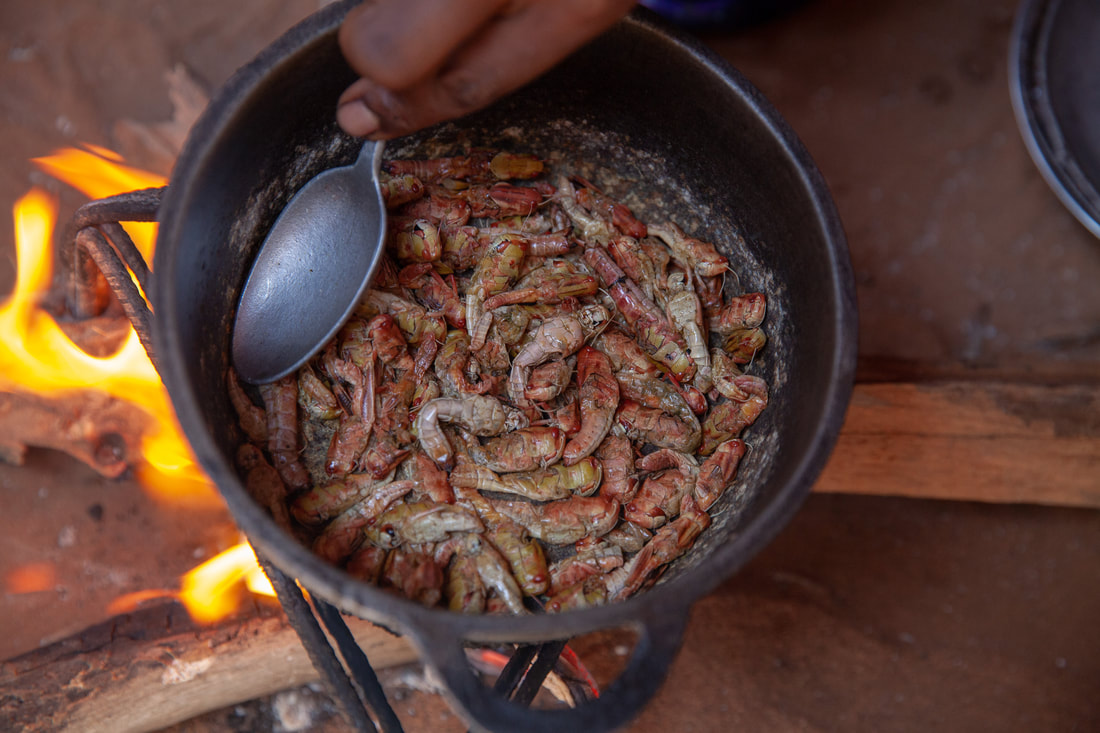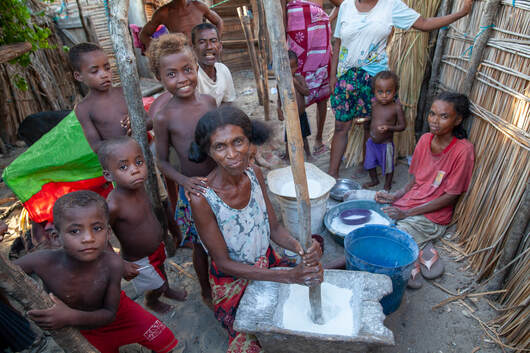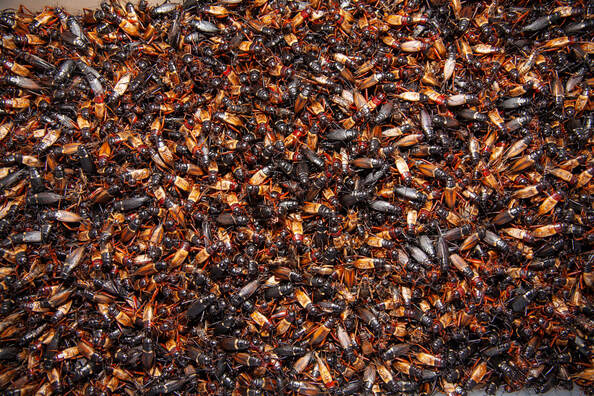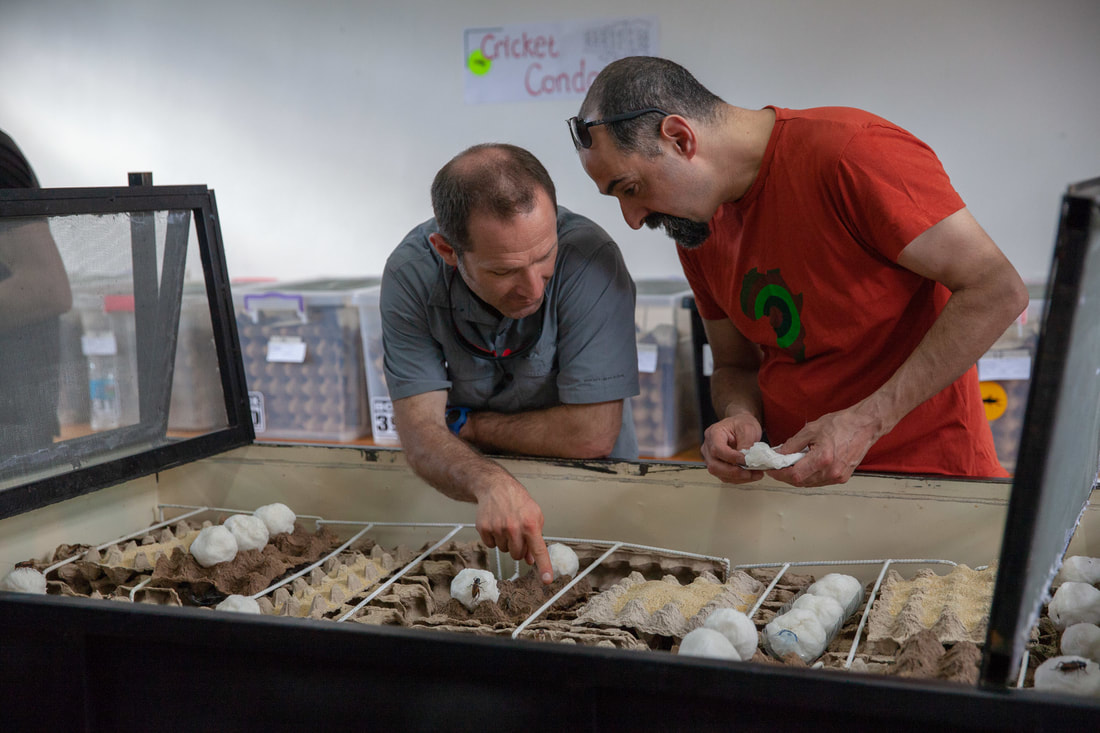Valala Farm is a project of the California Academy of Sciences
“Valala iray hifanapahana” I have only one cricket but I will break it in half to share".
The well known Malagasy proverb speaks to the generosity of the Malagasy people.
The well known Malagasy proverb speaks to the generosity of the Malagasy people.
|
Madagascar’s remarkable biodiversity is threatened by the rising demand for food. Traditional farming practices and lemur (bushmeat) hunting cannot sustain a population that will double in 25 years, especially when existing cropland is degraded and only 10% of natural habitat remains. If current trends continue, the island’s unique wildlife will vanish alongside remaining natural habitats.
Conservation efforts can do little to halt the continued destruction of this living resource when locals are hungry and malnourished. In Madagascar, more than 90 percent of the population lives below the international poverty line. Almost half of all children under five are malnourished. Madagascar as a whole experiences the world’s fourth highest rate of chronic malnutrition. This broad-based effort will use wild and edible insects to both sustain local habitats and feed local communities, especially malnourished children. Farming insects will increase the economic stability of rural areas, add value to forest protection through food security, help restore forest, and reduce demand for lemur hunting. We will improve the diets of malnourished children with a farming system that increases the value of the forest in the eyes of local people |
In Madagascar, insects are an indispensable part of seasonal diets for many ethnic groups. Insects farmed for food can provide an environmentally sustainable and nutritious alternative to traditional protein sources. Insects offer a far greater range of nutrients than commonly consumed meats, yet require a much smaller footprint to produce. We will strengthen the tradition of eating insects with innovative techniques to make this valuable food available to every child while encouraging forest conservation. With insect protein, we can feed all of Madagascar’s children and reduce pressure on the remaining forests.
|
|
Our method will connect the benefits of insect farming to the preservation of natural forest. Our approach will reduce bushmeat/lemur consumption by providing an alternative protein source. The byproduct of this industry, insect frass (manure), is a superior fertilizer that will extend the use of current farmlands and reduce the need to clear virgin forest.
Our IPSIO collaborative, a partnership of the Madagascar Biodiversity Centre part of the California Academy of Sciences, Entomo Farms, CEPF, CRS, and several research scientists, has developed native Madagascan field crickets as a major source of food affordable to everyone and encourages the protection of the natural forests and wildlife. Crickets convert a wide range of organic waste products into nutritious food with about twice the efficiency of chickens and pigs and six times the efficiency of cattle—all without causing the devastation of overgrazing and erosion. Insects contain up to 65% protein and are rich sources of minerals and vitamins such as iron, zinc, copper, magnesium, selenium, biotin (B7), and pantothenic acid (B5).
We propose to introduce our edible cricket products to urban and rural communities across Madagascar. Stage one, the development of farming techniques for native species, was completed in 2017 at the Madagascar Biodiversity Center. We currently produce 100 kg crickets per week, yielding 65 kg of protein powder. We process the crickets following protocols developed by Entomo Farms, the largest supplier of food-grade crickets in North America. Our first sales were in May 2018 and focused on feeding malnourished chidlren. With investment, we can scale production to provide enough protein for every child in Madagascar. |
While our 2017–2018 efforts are focused on building a production facility in the Tana area, we are also developing a network of farmers located within a three-hour drive who are interested in learning small-scale insect farming. They will share this newfound knowledge with members of their community. In the future, these farmers may be able to sell their crickets to our processing facility in Tana as well as supply their local communities. After successful deployment near Tana, local NGO FANAMBY will extend our community-based rearing program to those living near protected areas across Madagascar. Local production of cricket protein will help address the malnutrition that is so pervasive in isolated areas of Madagascar. In the hinterlands, people tend to be poor, have low dietary diversity, and habitually hunt bushmeat. By reducing the need to hunt that threatens lemurs and other animals with extinction, insect rearing for local consumption is our best hope to conserve iconic species key to the lucrative ecotourism trade.
|
We are safe and sustainable
|
|
Impact: Up-scaling cricket farming will contribute significantly to Madagascar’s efforts to address malnutrition and micronutrient deficiencies while reducing threats to its remaining forests and animals. Crickets grow quickly, are easy to breed, and are inexpensive to raise, making their production accessible to the poorest members of society. Insects (whole and in powder form) are already a traditional food in Madagascar. Producing crickets in large quantities would greatly facilitate efforts by the World Bank, the National Nutrition Office, and the Ministry of Agriculture and Animal Production to improve the lives and health of the Malagasy people. At the same time, this project will diminish the need to hunt bushmeat, helping to conserve Madagascar’s celebrated biodiversity. In addition, the farming of insects produces considerable amounts of high quality fertilizer that will improve current farming yields and reduce the need for continued forest clearing.
|






